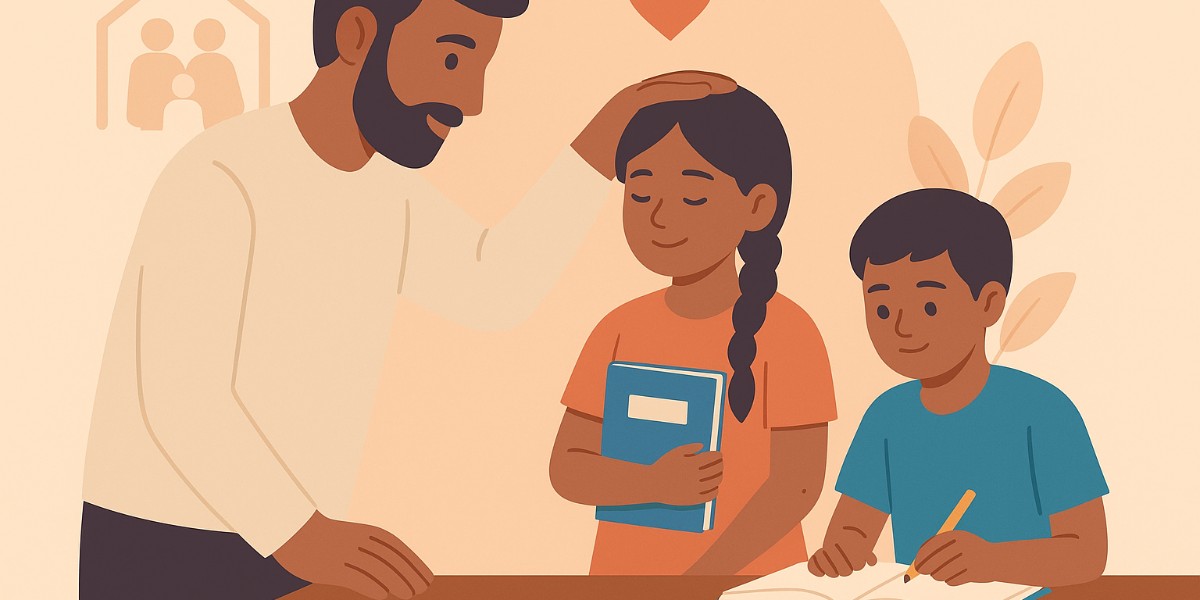
Date: Oct 12, 2025
In every corner of the world, millions of children face a life without parents, guardians, or stable homes. These orphans and vulnerable children are among the most at-risk groups in society, struggling not only with poverty and neglect but also with emotional trauma, limited access to education, and health challenges. Providing care, love, and opportunities for these children is not just an act of charity—it is a profound commitment to humanity’s collective future.
Organizations, governments, and compassionate individuals across the globe have come together to address this urgent cause. Their mission is simple yet vital: to restore hope, build confidence, and ensure that every child, regardless of their circumstances, has the chance to live a dignified life.
Orphaned and vulnerable children (OVCs) face a multitude of social, emotional, and economic challenges that threaten their growth and development. Losing one or both parents can disrupt a child’s entire world—removing emotional stability, financial support, and access to education or healthcare.
In many developing countries, including Pakistan, these challenges are intensified by poverty, conflict, disease, and natural disasters. According to UNICEF, millions of children in South Asia are deprived of basic rights due to the loss of parental care or family instability.
Some of the most common challenges include:
Addressing these issues requires more than temporary relief—it demands sustainable, structured, and compassionate long-term interventions.
Nonprofit and charitable organizations play a crucial role in transforming the lives of orphaned and vulnerable children. Through organized welfare programs, they provide shelter, education, healthcare, and emotional support.
In Pakistan, foundations such as Madinah Foundation, Edhi Foundation, and SOS Children’s Villages are leading examples of institutions that have made a lasting impact. They ensure that every child they support receives holistic care that addresses both material and emotional needs.
The core pillars of these initiatives often include:
Such integrated care models ensure that orphan support is not limited to immediate relief but leads to lifelong empowerment.
The Madinah Foundation, known for its wide-ranging humanitarian work, has made child welfare one of its top priorities. Rooted in compassion and guided by Islamic principles of charity and care, the foundation has established several programs aimed at protecting and nurturing orphans across Pakistan.
The foundation’s “Hope and Care” initiatives focus on providing shelter, education, and healthcare to children in need. Each program is designed not only to fulfill basic needs but also to promote self-worth, dignity, and confidence among children who have suffered loss and hardship.
By investing in these initiatives, the Madinah Foundation demonstrates that true progress begins when every child is allowed to thrive.
Education is the most powerful tool to break the cycle of poverty and dependency. For orphans, it represents a bridge from despair to hope—a chance to imagine a better future.
Organizations that focus on education for vulnerable children not only teach academic subjects but also provide vocational and character-building training. Skills like computer literacy, language proficiency, and entrepreneurship help children become self-reliant adults.
Moreover, educational programs instill confidence and social awareness. Children learn about their rights, responsibilities, and the value of compassion, creating a new generation of socially responsible citizens.
Supporting orphans is not solely the responsibility of charitable organizations—it’s a collective duty that calls for active community involvement. Sponsorship programs, in particular, provide an easy and transparent way for individuals to make a direct impact.
Through monthly or yearly contributions, sponsors can cover the cost of a child’s food, clothing, education, and healthcare. Many organizations even facilitate direct correspondence between sponsors and children, fostering emotional bonds that go beyond financial aid.
Corporate partnerships are equally significant. By including orphan support in their corporate social responsibility (CSR) programs, businesses can drive sustainable change at a larger scale.
Community awareness campaigns and volunteer programs also play a key role in breaking stigmas and ensuring that every child receives love and respect, regardless of their background.
The ultimate goal of all orphan support efforts is not just to provide temporary relief—it is to create permanent, loving, and stable environments where children can flourish.
This vision includes strengthening family-based care systems, supporting guardianship arrangements, and encouraging adoption where culturally appropriate. It also involves empowering communities to take ownership of the problem and be part of the solution.
With the right support, today’s orphaned and vulnerable children can grow into tomorrow’s leaders, innovators, and changemakers.
Anyone can be part of this mission. Whether you choose to donate, volunteer, or simply spread awareness, every action counts. Here are some impactful ways to help:
Even a small contribution can bring immense change to a child’s life.
Supporting orphans and vulnerable children is not merely an act of kindness—it’s an investment in the moral and social fabric of our world. Every child deserves love, care, and a chance to dream. Through collective efforts—by individuals, communities, and organizations like the Madinah Foundation we can ensure that no child grows up feeling forgotten or hopeless.
Hope begins with action. Care creates change. Together, we can build a future where every child is nurtured, protected, and empowered to shine.
Relevant Blogs